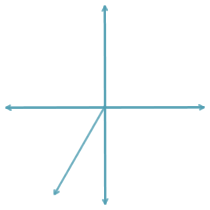2010 Heading
Saturday, 09 January 2010 | 5 Comments
This is where I hope I’m headed in 2010.

Ability to learn
I want to continue to better understand the style of learning that works for the kids at my school. Mathematics as a subject that is accessible, meaningful and useful.
I loved using Pie Charts – Movie Posters with my two Year 8 classes in 2009. The end results hang, laminated, on the back wall of my classroom to encourage me to be using rich, meaningful tasks that are accessible to my students (oh, and they look great).
Be Less Helpful
In March 2009, Dan Meyer posted A Fifth-Year Teacher’s Creed in which he said,
And so I tell myself:
Be less helpful.
This rattled around my head in 2009, and started to lock-in at the end of 2009. As it’s my fifth year of teaching this year, I hope it establishes itself as a part of my teaching.
Turn interesting into challenging
A must read for maths teachers: How Do You Turn Something Interesting Into Something Challenging?. I need to be finding, doing and sharing more stuff like: World’s Fastest Clapper.
Create
I want to continue to create some relevant and engaging activities, suitable for my students, and preferably making use of the DER machines.
Share
I want to continue to share resources on this blog. I want to continue to catalogue great online resources in the Maths Links section of this site and I want to make that experience even more useful that more teachers would use it and contribute to keeping the collecting.
I’ll start the year as the acting head teacher of my faculty, so I want to encourage the active sharing of ideas and resources within my faculty and make sharing something that my colleagues find natural, easy and worthwhile.
Problem Solving
The students at my school falter when a question involves more than one concept or skill, also their literacy levels are not great. It’s been easy to ignore ‘problem solving’ type questions because the kids won’t get it, but that is not good enough.
I went to a professional development course during the year on Newman’s Prompts, I probably should revisit that.
Network
Twitter is a great way to network, but I really enjoyed meeting with teacher’s of Year 6 from the local Primary Schools. It’s really helpful for us high school teachers to understand how the students we will see in the following year are learning, but it’s equally as helpful for the primary school teachers to understand where high school is expecting the level of mathematics of incoming students. There are lots of side benefits too: improving the reputation of our high school at the primary schools and encouraging generalist primary school teachers in their teaching of mathematics.
What’s next
Having worked in a 7-10 school for four years, and starting the year as the acting head teacher (and needing to consider whether to apply for the head teacher position when it is advertised), it’s time to consider what’s next. Where I work is a tough school, but the kids there as much or more than any others need good quality teaching.
Have you considered some aims, goals or general ideas for 2010?
Afterword This post started out as one where I considered the challenges that lie ahead in 2010, and quickly spiralled into a navel-gazing rant about the shortfalls of the system and the frustrations created by some people. But, that’s not really where I want to focus in 2010. The one thing that the Digital Education Revolution (DER) has done, at least in NSW DET schools, is to get us all talking about the system, it’s many shortfalls, strengths and weaknesses. For that discussion head to Stu Hasic’s post How many light bulbs does it take to change teaching?. My realm of influence, as a classroom teacher, extends to the students in my classes on a good day. On a bad day, that influence may only be some small percentages of those students. So, I re-wrote the post, and focused on what I can do.
Posted in • Reflection | Short URL: http://mths.co/1782
Post a comment
Commenting is not available in this channel entry.New Subscribe to the …
MathsLinksemail newsletter
Get updates…
About
Simon Job — eleventh year of teaching maths in a public high school in Western Sydney, Australia.
MathsClass is about teaching and learning in a maths classroom. more→
Archive
Elsewhere
 @simonjob
@simonjob
updates via  @mathslinks
@mathslinks
Recently read/found.
Being a Vector is not Mutually Exclusive – Ringo Mok
maths vectorsInstagram
Gcf howie_hua maths
Comments
author
author